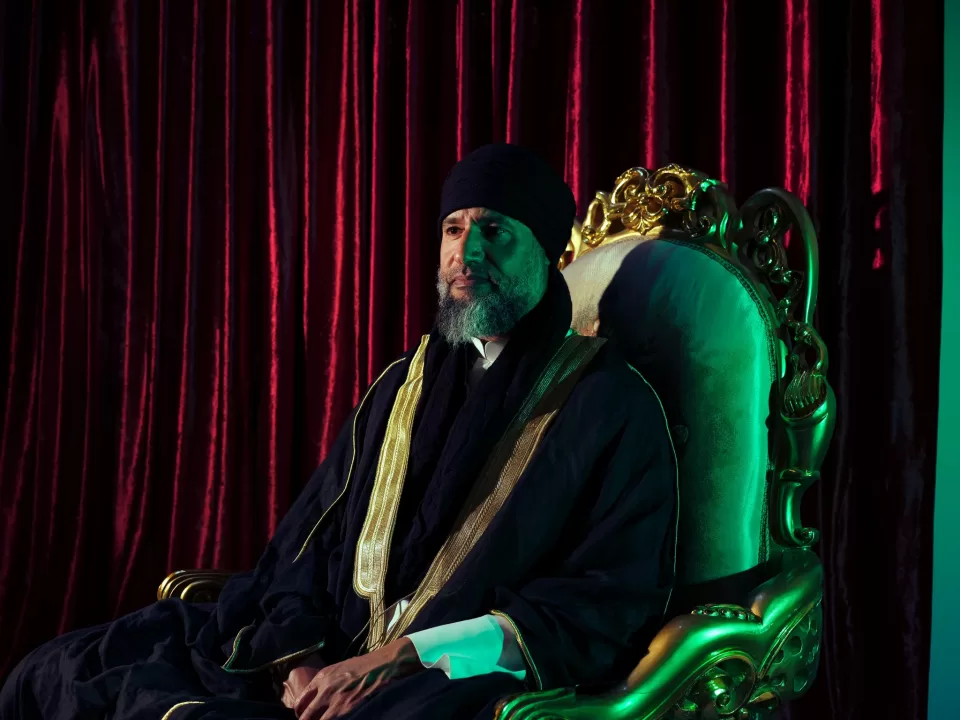In his first meeting with a foreign journalist in a decade, Seif al-Islam described his years in captivity — and hinted at a bid for Libya’s presidency.
Ten years ago, near the remote Libyan desert town of Awbari, a band of armed rebels ambushed a small convoy that was fleeing south toward Niger. The gunmen stopped the cars and found a youngish bald man with bandages covering his right hand. They saw a face that had been ubiquitous on Libyan state television: Seif al-Islam el-Qaddafi, the second son of the country’s notorious dictator and one of the rebels’ chief targets.
Until the Libyan uprising began, in February 2011, Seif was widely seen in the West as the country’s best hope for incremental reform. With his clean-cut good looks, rimless glasses and impeccable English, he seemed utterly different from his flamboyant, erratic father. Seif had studied at the London School of Economics and spoke the language of democracy and human rights. He cultivated respected political scientists and lectured young Libyans on civics. Some of his Western friends even spoke of him as Libya’s potential savior.
But when the revolution came, Seif enthusiastically joined the Qaddafi regime’s brutal crackdown. The rebels who triumphed nine months later might easily have rewarded him with a summary execution, as they did his father and other high-ranking officials. Instead, Seif had the good luck to be captured by an independent-minded brigade that guarded him from other rebel factions and flew him to Zintan, their home region in the mountains southwest of the capital. Seif was also wanted by the International Criminal Court, and that made him a valuable hostage. The Zintanis kept him as their prisoner even after Libya held elections in 2012.
In the years that followed, Libya fractured into warring militias. Terrorists ransacked the country’s weapons depots, fueling insurgencies and wars across Northern Africa and the Middle East. Human trafficking thrived, sending waves of migrants across the Mediterranean to Europe. ISIS set up a mini-caliphate on the Libyan coast. Slowly, Libyans began to think differently of Seif al-Islam, who prophesied Libya’s fragmentation in the early days of the 2011 revolt. There were reports that he had been freed by his captors, and even that he was planning to run for president. But no one knew where he was.
Via New York Times

